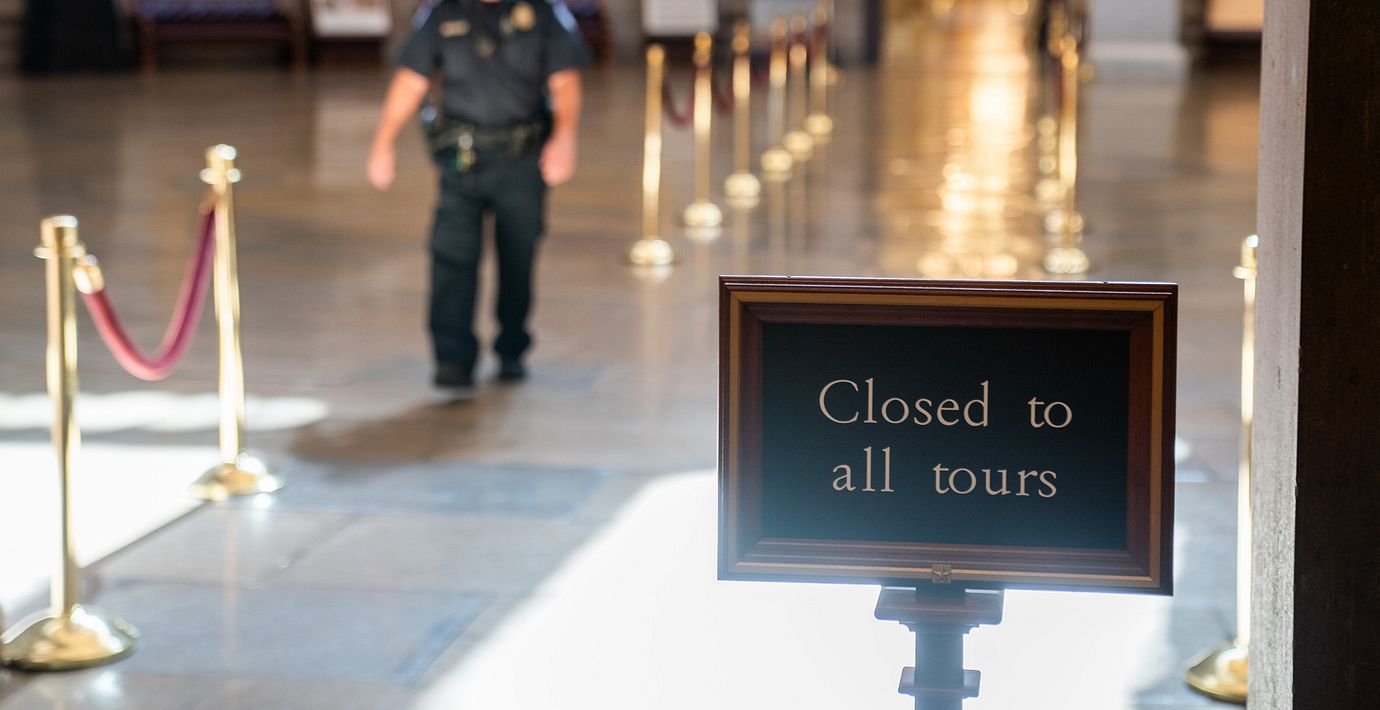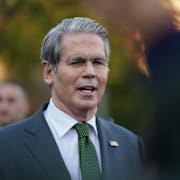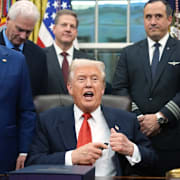
Källor: Utsatta kommer drabbas hårdast av nedskärningar
Tusentals federalt anställda har sagts upp under den amerikanska nedstängningen. Det kommer främst att drabba redan utsatta amerikaner, såsom skolbarn, låginkomstfamiljer, hemlösa och äldre. Det skriver Washington Post med hänvisning till tidigare och nuvarande chefer på federala myndigheter.
En källa, som vill vara anonym, uppger att regeringen nu satt ”sista spiken i kistan” för Lyndon Johnsons giv ”det stortartade samhället” som riktade in sig på att utrota fattigdom och stärka skolan och vården.
– De listade äntligen ut hur man gör det inte ens Reagan kunde, säger samma person.
Vita husets budgetkontor OMB har inte återkommit med en kommentar.
bakgrund
Great Society
Wikipedia (en)
The Great Society was a series of domestic programs enacted by President Lyndon B. Johnson in the United States between 1964 and 1968, aimed at eliminating poverty, reducing racial injustice, and expanding social welfare in the country. Johnson first used the phrase in a May 7, 1964, speech at Ohio University. The Great Society sought to build on the legacy of former President Franklin D. Roosevelt's New Deal reforms of the 1930s, and planned to use the power of the federal government in order to address economic inequality, improve education and healthcare, and promote civil rights.
The post–World War II economic expansion had raised living standards for many Americans, but significant disparities remained, particularly for racial minorities and those living in impoverished rural and urban areas. The civil rights movement was gaining momentum, highlighting systemic racism and discrimination. Some of the Great Society initiatives were derived from New Frontier proposals which had stalled during the administration of John F. Kennedy, whom Johnson had succeeded in 1963. Johnson's success depended on his skills of persuasion and the Democratic Party's landslide victory in the 1964 elections, which made the 89th Congress the most liberal since 1938, with a supermajority in both chambers. In the 88th Congress it was estimated that there were 56 liberals and 44 conservatives in the Senate, and 224 liberals and 211 conservatives in the House. In the 89th Congress, by contrast, it was estimated that there were 59 liberals and 41 conservatives in the Senate, and 267 liberals and 168 conservatives in the House.
The core programs of the Great Society focused on a "war on poverty" which increased federal involvement in education, employment, and healthcare. The Economic Opportunity Act of 1964 created a Job Corps and Volunteers in Service to America; the Food Stamp Act of 1964 provided low-income people assistance in purchasing food; the Elementary and Secondary Education Act of 1965 authorized federal expenditure on schools with low-income students; and the Social Security Amendments of 1965 created Medicaid, which funds some medical costs for low-income individuals, and Medicare, a health insurance program for people aged 65 and over. Measures designed to end racial injustice included the Civil Rights Act of 1964, which prohibited racial segregation in schools, public spaces, and workplaces; the Voting Rights Act of 1965, which ensured that minorities could exercise their right to vote; the Immigration and Nationality Act of 1965, which abolished quotas based on national origin and placed a greater emphasis on skills and links to U.S. citizens; and the Civil Rights Act of 1968, which prohibited housing discrimination. Additional projects included the National Endowment for the Arts; consumer protection measures; the Housing and Urban Development Act of 1965, which expanded the federal housing program; the Motor Vehicle Air Pollution Control Act of 1965, which limited motor vehicle emissions; and the National Trails System Act of 1968, which created a system of hiking trails.
Many of the Great Society projects were opposed by Republicans, who objected to what they considered "government handouts". Johnson's popularity declined as he committed more troops to the Vietnam War, which drew on resources that could have been directed toward the Great Society. Some projects were expanded under the administrations of Republican presidents Richard Nixon and Gerald Ford while others were dismantled, and funding for many was cut by Ronald Reagan.
Omni är politiskt obundna och oberoende. Vi strävar efter att ge fler perspektiv på nyheterna. Har du frågor eller synpunkter kring vår rapportering? Kontakta redaktionen



